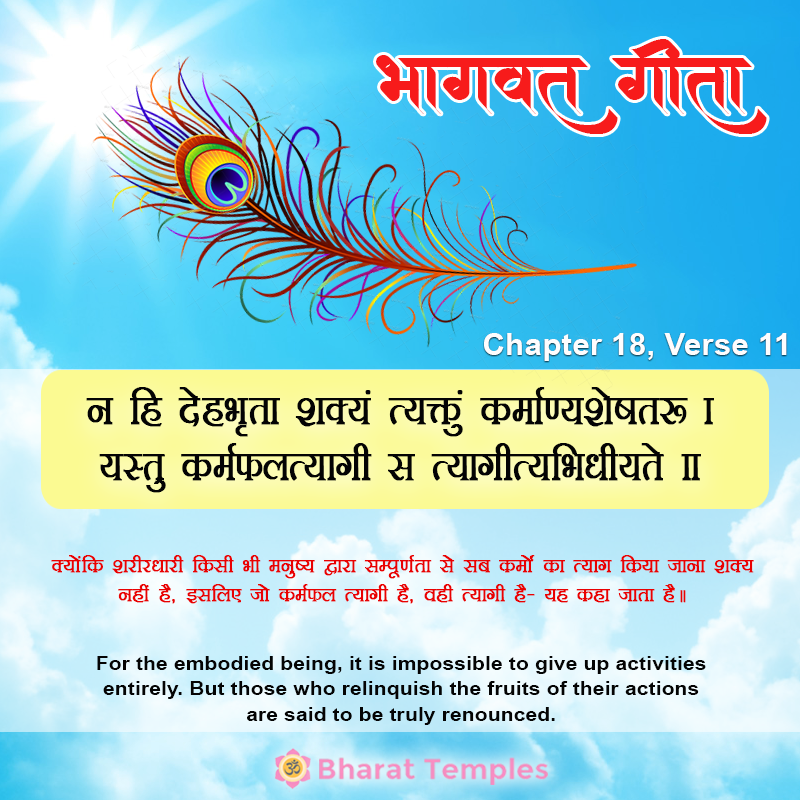न हि देहभृता शक्यं त्यक्तुं कर्माण्यशेषत: |
यस्तु कर्मफलत्यागी स त्यागीत्यभिधीयते |
na hi deha-bhṛitā śhakyaṁ tyaktuṁ karmāṇy aśheṣhataḥ
yas tu karma-phala-tyāgī sa tyāgīty abhidhīyate
भावार्थ:
क्योंकि शरीरधारी किसी भी मनुष्य द्वारा सम्पूर्णता से सब कर्मों का त्याग किया जाना शक्य नहीं है, इसलिए जो कर्मफल त्यागी है, वही त्यागी है- यह कहा जाता है॥11॥
Translation
For the embodied being, it is impossible to give up activities entirely. But those who relinquish the fruits of their actions are said to be truly renounced.
English Translation Of Sri Shankaracharya’s Sanskrit Commentary By Swami Gambirananda
18.11 Deha-bhrta, for one who holds on to a body-one who maintains (bibharti) a body (deha) is called a deha-bhrt. One who has self-indentification with the body is called a deha-bhrt, but not a so a man of discrimination; for he has been excluded from the eligibility for agentship by such texts as, ‘He who knows this One is indestructible৷৷.’ etc. Hence, for that unenlightened person who holds on to the body, he, since; it is na, not; sakyam, possible; tyaktum, to give up, renounce; karmani, actions; asesatah, entirely, totally; therefore the ignorant person who is competent (for rites and duties), yah, who; tu, on the other hand; karma-phala-tyagi, renounces results of actions, relinishes only the hankering for the results of actions while performing the nityakarmas; sah, he; is abhidhiyate, called; tyagi iti, a man of renunciation-even though he continues to be a man of rites and duties. This is said by way of eulogy.
Therefore total renunciation of actions is possible only for one who has realized the supreme Truth, who does not hold on to the body, and who is devoid of the idea that the body is the Self.
Again, what is that purpose which is accomplished through renunciation of all actions? This is being stated:

